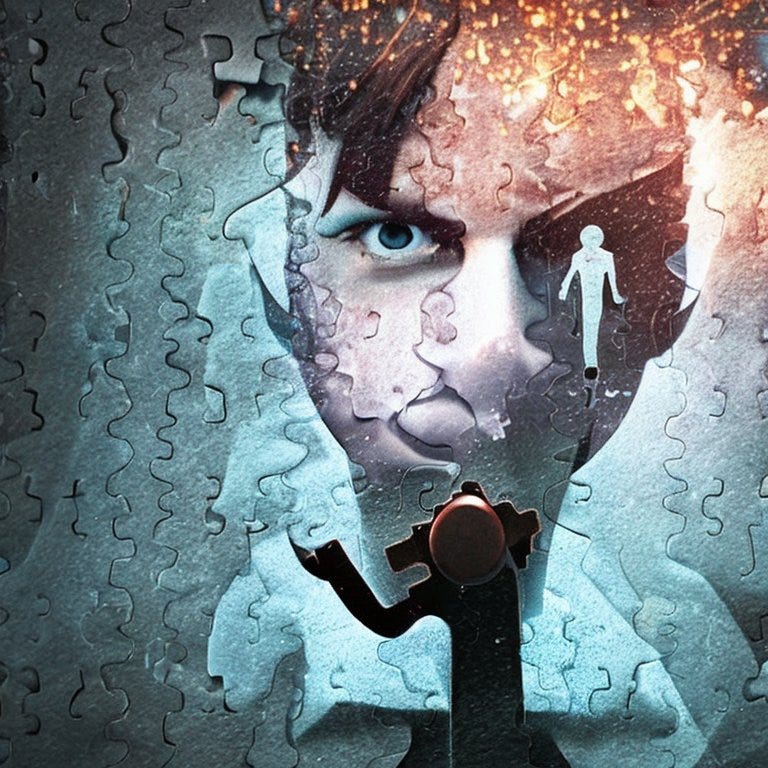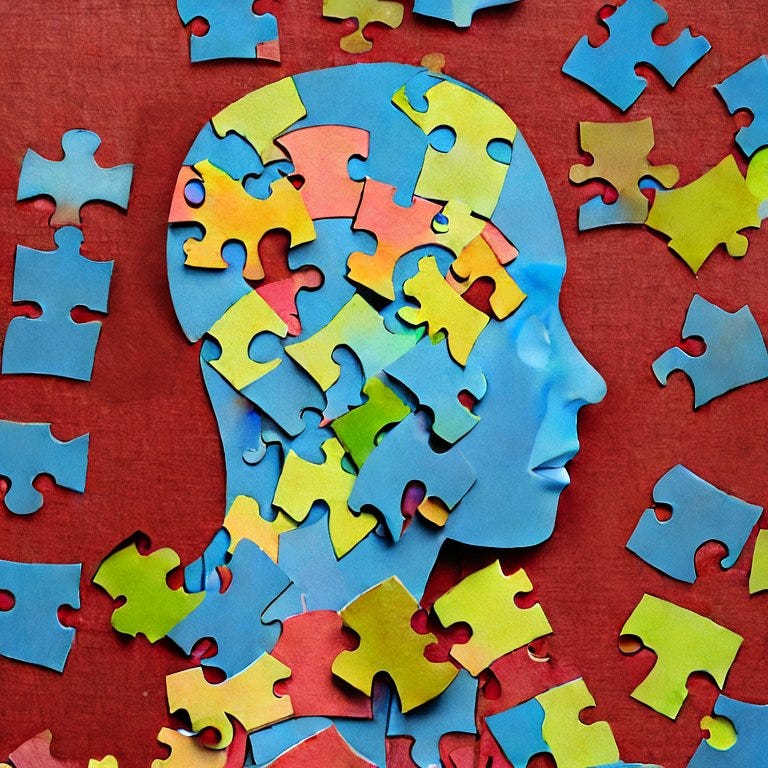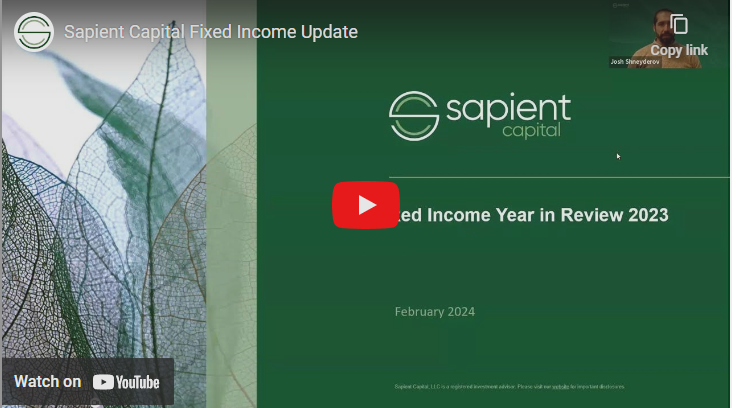Learning about success from a big mistake
[14 minute read]
“Successes teach you nothing. Failures teach you everything. Making mistakes is the most important thing you can do.”
– James Dyson
My friend Mike Cordaro recently asked me to appear on the Alliance Wealth Advisors podcast. The day before our interview another company asked if I’d like to come on and discuss the use of alternative data in investing. I chuckled and declined. Despite having spent a year in the alt data space, I’d be embarrassed to present myself as an authority on the topic.
But preparing for the Alliance podcast forced me to think about what I am qualified to talk about.
The answer is transitions.

My expertise stems mostly from having made every conceivable personal and professional mistake during my own life transition. I’ve learned much more about success from my failures.
In the years of obsessive studying since then I’ve also come to learn that transitions are fractal; there’s a relatively universal pattern that applies across multiple domains, from stock markets, to societies, to human development.
Once you recognize the pattern you can avoid the pitfalls. And maybe even make successful predictions.
My prolonged midlife crisis involved a two year living hell. I clumsily stumbled away from traditional finance, via an eternity of paralyzing depression, to the strange-but-wonderful position I find myself in today.
When I started on Wall Street in 2005 my job was a “research salesperson”. This involved skim-reading about 30 of my bank’s research reports every morning to find the key insights. I then had to distill and communicate them to ludicrously busy investors on email or voicemail. Occasionally I would get them live on the phone at the busiest time of their day, just before the market opens. They don’t want your call much, the dynamic of their commission dollars is entirely in their favor and they mostly have a decade of experience on you. If you sound like an idiot, even once, you may never regain their respect. This accelerated bootcamp gave me a keen sense for when a piece of information was valuable.
I also had a lot of experience in “translating genius.” Essentially a lot of very smart people are poor communicators. I spent years working out how to make complex specialist research accessible for a generalist audience.
Once I decided to leave my job on Wall Street, one of my most serious mistakes was rejecting the skills I’d learned from my time in finance. I believed my skillset was both meaningless and useless; my time in finance had been entirely wasted. I also had a substantial number of people tell me that to my face. “There are no career paths for ex-Wall Streeters, your salary expectations would be too high and your skills don’t transfer.” Some people slink off to sell life insurance. But I’ve also seen too many others make irreversible, tragic choices. Either they waste their own lives or take their own lives.
“Denying your own feet.”
In my own career transition I became trapped for what felt like an eternity, and left me so desperate and despairing it could easily have cost me my life too.
My experience also illustrates a fundamental idea.
The tendency of evolution is towards greater complexity.1 The transitions that generate increasing complexity are achieved through an endless process of transcending and including lower stages. Molecules become parts of cells, become parts of organs, become parts of humans and so on. As the most complex objects in the known universe, human brains are currently the apex of this process.
Transitions cycle between stages of competition and cooperation at increasingly greater scale. Systems can become imbalanced towards excessive competition. In our own bodies this imbalance describes cancer; where one group of cells grows at the expense of the entire organism. In capitalism, this is when excessive competition leads to systemic inequality and instability. As evolutionary biologist David Sloan Wilson explains:
“That’s the problem with laissez-faire in all its forms. It is simply profoundly untrue that lower-level agents pursuing their narrow interests—whether an individual, a small firm… robustly benefit the common good. Most of our modern pathologies are of this sort.”
For the whole system to be restabilized, competition needs to be transcended and included back into a more cooperative system. Put simply: all zero-sum games (with winners and losers) eventually collapse, positive-sum games can go on forever because everyone benefits.
But there’s one specific aspect of these transitions that’s utterly fascinating, and I wish I’d known about it during my own crisis.
A couple of years ago I listened to a podcast with Wilber that introduced me to an idea that I’ve been thinking about ever since. In a successful transition, cells become a part of organs: they are complete wholes that then become part of larger wholes. They aren’t destroyed by becoming part of organs, otherwise the whole system collapses. But Wilber talks about how, when moving to a more integrated stage, we often pathologically “repress” the previous one instead of integrating it. While he says this is as sensible as “denying our own feet”, we can see it constantly at every level of reality.
Critics of capitalism call for the entire market system to be scrapped. Critics of technology fantasize about an era before the internet. But we can’t move backwards: these stunningly powerful systems need to be reincorporated within a more positive-sum framework. The market economy needs to return to the service of the broader environment and the poorest workers it has neglected. From a technological perspective, it means using A.I. or engagement algorithms to serve human curiosity and flourishing. The unbalanced, zero-sum tool returns to serving the needs of the users rather than just the monopolies they have created.
At a cultural level we’re currently living through a repressive stage. We have fully embraced the cooperative values of equality and social justice. Yet ironically we are often excessively intolerant of other groups that don’t share this worldview. We can also reject all power hierarchies and traditional roles that may have served a valuable societal purpose. As Wilber describes this stage of development:
“It can become so self-righteous that it begins to justify almost any action, no matter how destructive, as long as it is perceived as promoting its values of equality, diversity, and community.”
We’re seeing some of the most extreme examples in college campus protests or cancel culture. We are unhealthily repressing our competitive side, not integrating it.
External Families, Internal Families
An example of “transcend and include” that’s most pertinent to each of us is within our own psyches. Legendary developmental psychologist Jean Piaget said that:
My one idea, developed under various aspects in (alas!) twenty-two volumes, has been that intellectual operations proceed in terms of structures-of-the-whole.
For example, children move from an egocentric understanding of other people as agents (“Man brings me food”) to more complex models of their minds and motivations (“Dad brings me food because he loves me and he’s happy when I’m healthy”). As we transcend and include our own worldviews, our understanding of other people gets more complex.
The more complex the theory of mind we have of another person, the easier it is to cooperate with them. We trust people we deeply understand. It’s also harder to compete in zero-sum games with people we’re close to. Thus the more integrated and complex your view of other people gets, the more cooperative you can become. So the evolution of our own consciousness follows the same pattern of complexification as the whole universe. I find that an incredibly profound idea.
The crucial element is that you cannot repress parts of your own psyche throughout this process of integration, as Carl Jung naturally intuited:
Wholeness is not achieved by cutting off a portion of one’s being, but by integration of the contraries.
This insight closely relates to the Internal Family Systems (IFS) therapeutic approach. It’s a theory that posits that people’s minds are made up of a variety of “parts,” each with its own unique set of beliefs, emotions, and motivations. Psychological stability results in becoming aware of them and then integrating them. Constantly repressing a key part of yourself drains energy and creates dissonance. Less internal conflict means living with a greater sense of ease and harmony.

“The Gift Flip”
On Wall Street in 2016 the incremental value of the information I was providing to investors had started to decline pretty significantly. I wasn’t benefitting my clients as much as I was wasting their precious time. But I was very well paid. Meanwhile, I became infatuated with every smart-sounding but ultimately nihilistic idea, especially transhumanism. I was seduced by the promise that we could leave our messy bodies behind and live forever in the cloud. If that’s not “denying our own feet” I don’t know what is. These ideas served my ego by helping me appear clever: I was parroting intensely articulate intellectuals with their logical arguments. My whole life I’d sought approval for my brains, and these ideas made me seem like a deep thinker. Who cares if I hadn’t examined these ideas enough to tell if I even believed in them myself?
I was using my gift for synthesis in service of a zero-sum game.
So I left finance. But then during my transition I repressed my skills entirely in service of the whole. I went far too far in the other direction. Rather than pick pursuits I enjoyed, I decided to sacrifice myself. When I entered my midlife crisis I focused on pursuing overtly “meaningful” career paths like social worker, hospice nurse or psychologist. None of these played to my strengths, because I didn’t think I had any.
In clumsily trying to transcend to the next level of growth, to what I thought was a “meaningful life”, I rejected the skills that had got me that far.
I repressed my gifts in service of a positive-sum game.
Years later I have “flipped the gift.” Instead of denying my skills, I use them in “positive-sum” ways. The time spent developing those skills was far from wasted! I profoundly enjoy exploring meaningful topics then finding ways to communicate them to audiences in ways that respect their time and attention. I use my “left hemisphere” analytic skills in service of the “right hemispheric” whole.
This may also be the future of our whole society. Philip Shepherd has written about how the next stage in humanity’s collective evolution is the return of the brain’s extraordinary analytical gift to the service of the heart, body and wider world. This is consistent with Dr. Iain McGilchrist’s belief that the brain’s left hemispheric “emissary” needs to return to the guidance of the right hemispheric “master”. It’s able to align us with the world in a way that doesn’t force us to manipulate it. Wilber also makes a similar point that science and rationality need to be integrated into a more holistic worldview. We can’t go backwards to a world before science, but we can find ways to return it to a meaningful context. It’s what’s currently happening at the leading edge of contemporary science. And it’s the most exciting thing I’ve ever witnessed.
The application of this idea to you, especially if you’re feeling a little lost, is to contemplate what your “left hemisphere” gifts are. Then to ponder how they could be “flipped” to serve a positive-sum goal without denying them. A very simple and common example is sales. If you’re selling something you believe in and think the world needs, it keeps you in a state of integrity. If not, the constant dissonance will slowly eat your soul.
Do what what you individually love, in service of the whole. The ideal is to get to a point where there’s no obvious difference between an act that’s selfish and selfless. Our reality is sustained by an exchange of gifts. Offer yours to the world, and see what you get back in return.
“There is much evidence on several levels that there are at least two major tasks to human life. The first task is to build a strong “container” or identity; the second is to find the contents that the container was meant to hold.”
– Richard Rohr
Related Reading
- Podcast: my appearance with Mike Cordaro on the Alliance Wealth Advisor Podcast (1hr 1min listen). Mike asked really thoughtful questions so this was a fun discussion on the nature of transitions. Our focus was on mid-life transitions, but these principles are surprisingly universal.
- Video: I was kindly invited onto a panel for VettaFi with Dave Nadig, Kris Abdelmessih and Adam Butler to talk polycrisis, zero-sum games and why I’m so optimistic in the face of so many negative long-term trends (53min watch). As a veteran options trader, Kris was a great addition to ask the right kind of questions to simplify our complexity.
- Article: The Other Invisible Hand in Noema (12 minute read). A short and powerful article on quite how catastrophically wrong laissez faire is as an economic and evolutionary philosophy.
Tom Morgan, Sapient Capital.
- I’ve written about this before, but two great pieces to read are this summary of Ken Wilber’s “theory of everything” and Brett Andersen’s classic essay on phase changes.


